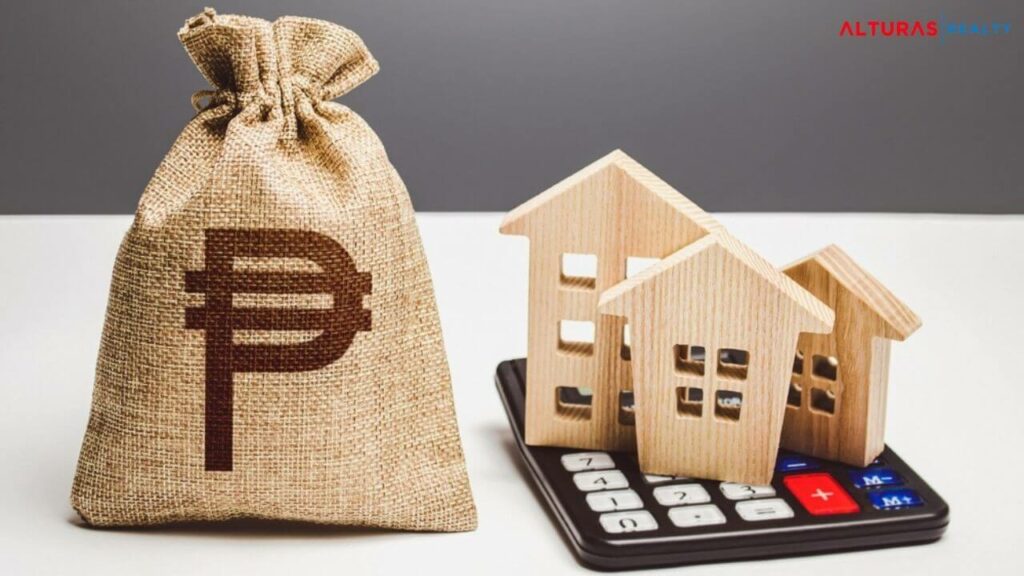
Renting Vs Buying a House: Make a Profitable Decision
One of the most important financial decisions that people make in their lives is whether to rent or buy a house. Both options have their own set of advantages and disadvantages, which can make decision-making difficult.
According to reliable source, the number of single-family homes in the United States has steadily increased over the last decade, deciding between renting and buying even more important.
It is a decision that will have a significant impact on your financial future. As a result, in this article, we will look at the benefits and drawbacks of renting versus buying a home to help you make a decision that fits your lifestyle and financial goals.
Owning a home in a good neighborhood with perfect renovations and a supply of utilities is a dream shared by many. Who wouldn’t want to design the interior of their home and watch their children play in the comfort of their own space? A home is a place of love and peace, but making this dream a reality can be a challenging task that requires consistent hard work and smart decisions.
Renting Vs Buying : What You Need To Know
One of the most significant decisions you will make is whether to rent or buy a house. In this time of skyrocketing property prices, owning a home is quite tricky and expensive. Therefore, deciding whether you should start saving to buy a home or keep living in a rented house to stay financially afloat depends upon various factors and circumstances.
Renting refers to the property occupied by anyone other than the owner for a particular amount of money, and the renter has to leave home to extend their stay legally after their living duration is finished. On the other hand, owning a home is relaxing and peaceful, as you don’t have to worry about paying rent monthly, and following the strict regulations of the owner can effectively build your credit score.
When it comes to profitability, the answer is not definite. Choosing between a rental home or buying a home largely depends on your financial stability and various other factors, such as your credit score history, savings for a down payment and maintenance, legal status, down-to-debt score, and job security.
After months of searching for a good neighborhood and a fine home and spending thousands of dollars within weeks, you’ll be able to get a home for yourself. While in the case of renting, you don’t have to worry about all these factors. Just choose a home that suits you and your family’s needs, talk to the owner, and start living there in exchange for monthly payments.
The idea of profit from renting a home or buying a house depends on how much financial, physical, and mental effort you are willing to put into the house. The answer can vary from person to person, depending on their needs and affordability.
To get a clearer picture of which option is more profitable, let’s compare renting vs owning a home. By doing so, you can make an informed decision and choose the best option for you.
Renting vs Buying a House: How it Works?

Buying a home in the US is a time-taking but easy process if you have definite planning, the proper budget, and professional help.
It starts by finding a house according to your pocket, secure financing and a trustworthy lender and agent, make an offer, negotiate price, have the home inspected, complete paperwork, pay the seller, and move in.
After moving in, you have to perform essential maintenance, renovations, supply of utilities, and other essential tasks.
This whole process of owning a home will take around six months, from finding your desired house to closing the deal. And suppose you find any significant problem with the home during inspections.
In that case, if your loan application gets rejected, the seller’s asking price is out of your budget, or any legal paperwork goes missing, you have to start looking for a new home, and it will take another six months.
On the contrary, renting a home is simpler than the purchasing process and contains only a few significant steps.
First, you have to tour the houses and neighborhoods and find a home that suits your needs. You can contact the real estate agents for this.
Then, start negotiating the rental terms and conditions with the homeowner.
After agreeing to the conditions and rent prices, you have to fill out the rental application, pay the rental application fees, sign the official lease documents, and pay the deposit money. And by this, you can start living in the home for monthly rent.
It includes no documentation hassle, lengthy negotiations with the seller, and no complicated terms and worries of the lenders.
Also, renting a home in the US will hardly take less than 1 to 2 months.
Check latest House for Rent in Los Angeles
Renting vs Buying a House: Pros and Cons
Let’s weigh the benefits of renting vs buying a house and see which is more profitable. Here’s what you need to know:
Process Time: Renting is quicker than buying, taking only 1-2 months compared to the 6-month process of purchasing a home.
Legal Documentation: Buying requires more legal documents while renting usually only requires proof of credibility and a lease agreement.
Maintenance Expenses: As a renter, you don’t have to worry about paying for repairs or maintenance costs. Homeowners, on the other hand, bear all these expenses.
Tax Payments: Renters don’t have to pay property taxes or other fees, but homeowners do.
Stability and Security: Homeownership provides long-term financial, physical, and mental peace, while renting is only temporary and requires moving every few years.
Increased Rents: Renters may face rising rental costs, but homeowners don’t have to worry about rent and may even benefit from increasing property values.
Restrictions and Regulations: Renters often face many rules and restrictions, while homeowners have the freedom to make changes to their homes.
Flexibility: Renting allows for more flexibility while buying a home is a long-term commitment with less room for change.
Buy Best Property in Los Angeles
Renting vs Buying a House: Which is Cheaper?

Well, the answer is simple. Renting a home only includes the rental application fees and security deposit to the landlord, which is your one to two months of rent.
And that’s it. You can move into your new home.
While buying, a home can cost you thousands of dollars and, in some cases, millions of dollars.
Before finding the home you want to buy, you have to start saving for the down payment, which can range between 3% to 20% of the total home cost.
Then you have to find a lender and real estate agent that works for finding you a home and a suitable loan scheme to borrow money if you are low on budget.
However, if you have already saved money and don’t want a loan, you can skip the lenders’ and loan application fees.
Then, you have to pay a huge amount of money for all the documentation of the home. After that, closing fees, taxes, and additional expenses are watching your way.
And if you think that your never-ending cycle of spending money on a home has ended, then you are mistaken.
After moving in, the maintenance, repair, replacements, utilities, power supply, transportation, renovations, and hundreds of expenses are ready for you.
So, buying a home is definitely way more expensive than renting one. And the difference between them is more than thousands of dollars.
Renting vs Buying a House: An Idea of Investment
Living in a rental house until you save enough money to buy a home without taking loans and paying additional interest is an excellent financial investment for your future. Still, it solely depends on your financial stability.
If your employment status, salary, everyday expenses, and your savings allow you to afford such management, then you should be considering the rent.
Similarly, if you are new to the city or moving out of your parent’s home and planning to get your own, and you won’t afford to buy a house right now, renting is an ideal option.
In short, choosing a rental property is profitable instead of taking excessive financial pressure on yourself and drowning in debts with low income.
However, purchasing should be your priority if you can afford to buy a home through government-sponsored loans, Fannie Mae, and Freddie Mac loan schemes, or with your own money.
Homeownership not only comes with mental peace but also saves you from skyrocketing rents and gives you authority over your property.
Even if you buy a home and give it up for the rent, you can start earning money from it every month for years until you decide to sell it to start living in it.
So, Which is More Profitable?
Not denying the fact that buying a home seems to be a more profitable and sound investment for the future, but the answer for every person is not the same.
Considering one’s financial status, employment situation, salary ratio, credit history, debt ratio, and hundreds of other factors can help you understand what is profitable: buying a home or renting.
So, before finalizing your decision, look thoroughly at the real estate market’s trends, property prices, financial health, and job future, and then make a settlement.
Renting Vs Buying a House FAQs
What are the advantages of buying a home vs renting?
Owning a home gives you complete authority and control over your property. You are free from the restrictions of rental landlords, like not owning a home or renovating the house. Also, you don’t have to worry about the increasing rent every month.
Should I buy a home or rent?
Well, the answer depends on your status and stability. To decide whether to purchase a home or go for the rent, check your savings, your salary, your credit score, your budget, and the neighborhood you are targeting and then decide whether you are stable enough to buy a house now or rent out is favorable.
How to find a home that suits my needs?
Finding a home right according to your needs is an effort and time taking process. You can find your desired home by driving through the neighborhoods you like and looking for “FOR SALE” boards, asking your friends and family to look for a home for you, or simply considering a real estate agent in the neighborhood to find you a home.
